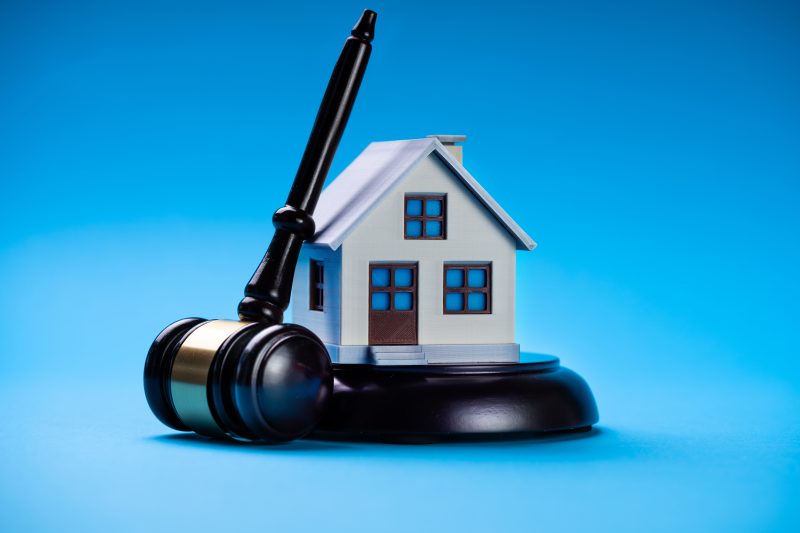
Who Gets the House in a Bergen County Divorce? Top 3 Most Common Outcomes
The divorce papers are filed, emotions are running high, and suddenly you're faced with a question that keeps you up at night: what's going to happen to our house?
For most Bergen County couples, the family home represents more than just a place to live. It’s years of mortgage payments, weekend renovation projects, your children’s bedrooms, and countless memories. It’s also likely the single largest asset you and your spouse own together. The uncertainty about what happens next can feel overwhelming. This is where a divorce attorney can help.
Here’s what you need to know: while every divorce is unique, most couples in Bergen County end up choosing one of three paths when it comes to the marital home. Understanding these options now can help you make smarter decisions and protect your financial future.
Understanding New Jersey's Equitable Distribution Laws
New Jersey is an “equitable distribution” state, which means marital property gets divided fairly—but not necessarily equally. Many people assume everything gets split 50/50, but that’s actually not how it works.
The courts consider multiple factors when deciding who gets what, including how long you’ve been married, each spouse’s income and earning capacity, the standard of living established during the marriage, and each person’s contribution to marital assets (including homemaking contributions). What surprises many divorcing couples is that your house might not be divided the way you expect.
The first question a judge asks isn’t “who gets the house?” It’s “is this house even marital property?”

Is Your House Considered Marital Property?
This distinction matters more than almost anything else in your divorce. Generally, if you purchased the home during your marriage, it’s marital property subject to division. But there are important exceptions.
If one spouse owned the house before marriage and kept it in their name alone, it might be separate property. However, if the other spouse contributed to mortgage payments, renovations, or maintenance, they might have a claim to some of its value. When both spouses are on the deed, it’s typically marital property regardless of who paid more toward the mortgage.
The complexity increases when you consider refinancing, renovations, or using separate funds for down payments. These situations require careful documentation and legal analysis. The Davies Law Firm in Hackensack regularly helps Bergen County clients untangle these complicated property questions and build strong cases for protecting their assets.
Outcome #1: One Spouse Buys Out the Other's Share
This is often the preferred solution when one person wants to stay in the home and can afford to do so. Here’s how it typically works: the spouse keeping the house refinances the mortgage in their name alone and pays the other spouse their share of the home’s equity.
Let’s say your house is worth $500,000 and you owe $300,000 on the mortgage. That means you have $200,000 in equity. If the division is equal, one spouse would need to pay the other $100,000 to buy out their share.
The challenge? You’ll need to qualify for a new mortgage on a single income, which isn’t always possible after divorce. Lenders will scrutinize your income, debts, credit score, and ability to handle the mortgage payment, property taxes, insurance, and home maintenance costs on your own. Many people discover too late that keeping the house simply isn’t financially feasible.
This option works best when you have strong income, good credit, and genuinely want to maintain the home long-term. It’s particularly common when children are involved and keeping them in their current school district is a priority.
Outcome #2: Sell the House and Split the Proceeds
When neither spouse can afford the home alone—or when emotions make any shared decision impossible—selling often becomes the most practical choice. You list the house, find a buyer, pay off the remaining mortgage and selling costs, and divide whatever’s left according to your divorce settlement.
This approach offers a clean break. Both spouses walk away with cash to start their new lives, and there’s no ongoing financial entanglement or arguments about who should pay for repairs or property taxes. For many Bergen County couples, especially those without children or those ready for a fresh start, this is the healthiest option.
The timing matters, though. Real estate market conditions in Bergen County can significantly impact how much you’ll net from the sale. Selling during a buyer’s market might mean accepting less than you’d hoped, while a seller’s market could maximize your proceeds. Experienced divorce lawyers can help you navigate these timing decisions strategically.
Outcome #3: Delayed Sale with Continued Co-Ownership
Sometimes couples choose a middle ground: continuing to co-own the house temporarily while one spouse (usually the primary custodial parent) lives there with the children. The house gets sold later, often when the youngest child graduates high school or reaches age 18.
This arrangement can provide stability for children during an already disruptive time. Kids stay in their familiar home, maintain friendships, and continue at the same school without additional upheaval.
But this option requires careful legal structuring. You’ll need crystal-clear agreements about who pays the mortgage, property taxes, insurance, and maintenance costs. What happens if the furnace breaks? Who handles lawn care? What if one spouse wants to sell earlier than originally agreed? Without detailed legal documentation, this arrangement can create ongoing conflict and financial disputes.
Both spouses typically remain on the deed and mortgage, which means both credit scores remain tied to those on-time payments. If the spouse living in the home stops paying, both spouses’ credit suffers. This shared financial responsibility continues until the house finally sells.
Next Steps: Getting Expert Legal Guidance for Your Bergen County Divorce
Deciding what happens to your house is one of the most consequential financial decisions you’ll make during divorce. The choice you make today will impact your financial stability, your children’s lives, and your ability to move forward for years to come.
The Davies Law Firm has helped countless Bergen County residents navigate these difficult property division decisions. We understand New Jersey’s equitable distribution laws, know how local judges approach these cases, and can build a strategy that protects both your immediate needs and long-term financial security.
Need help navigating which outcome is best for your home? Call The Davies Law Firm at (201) 820-3460 today to schedule a consultation with a skilled Hackensack divorce attorney who will fight for your interests and help you make informed decisions about your home.
